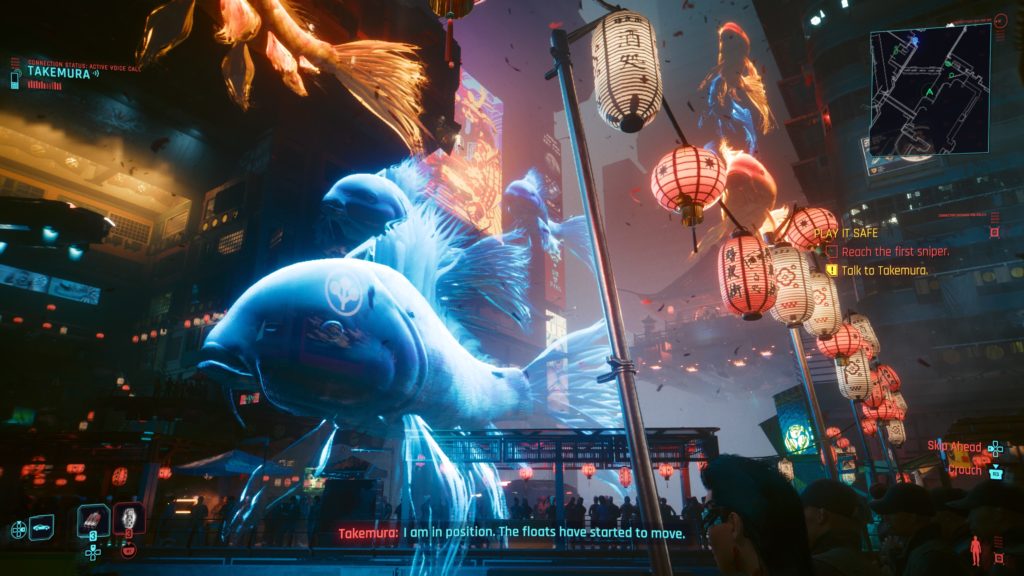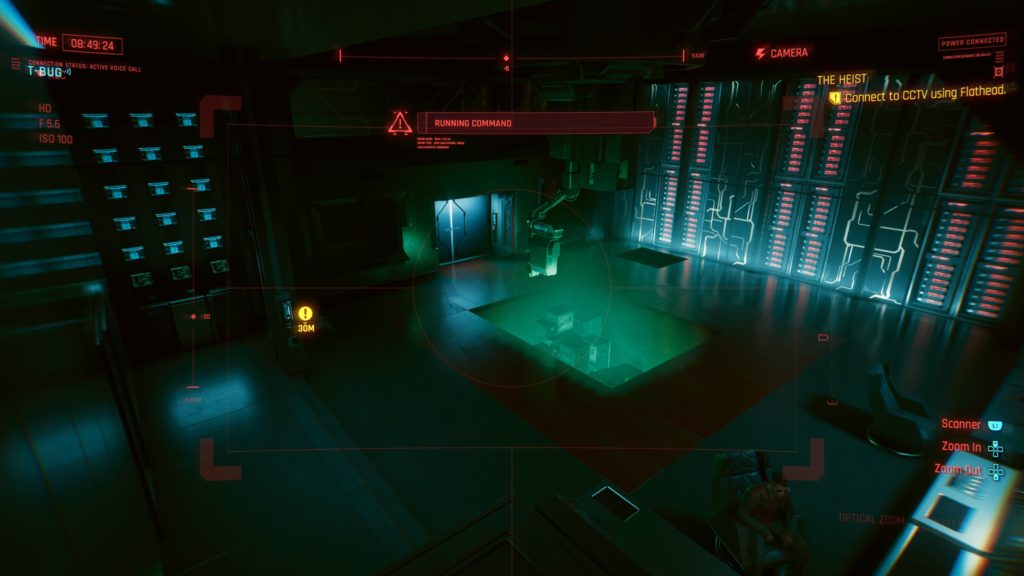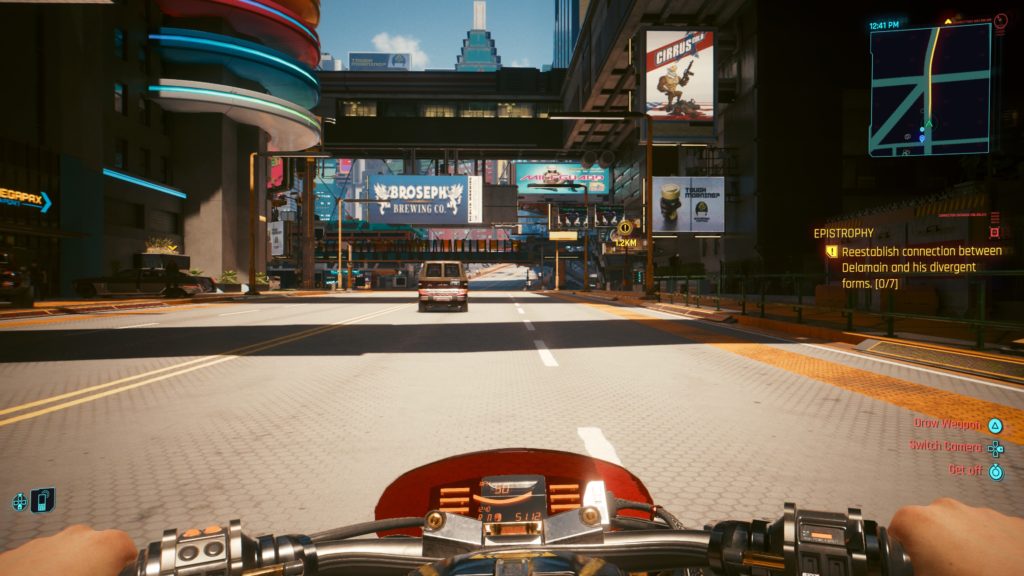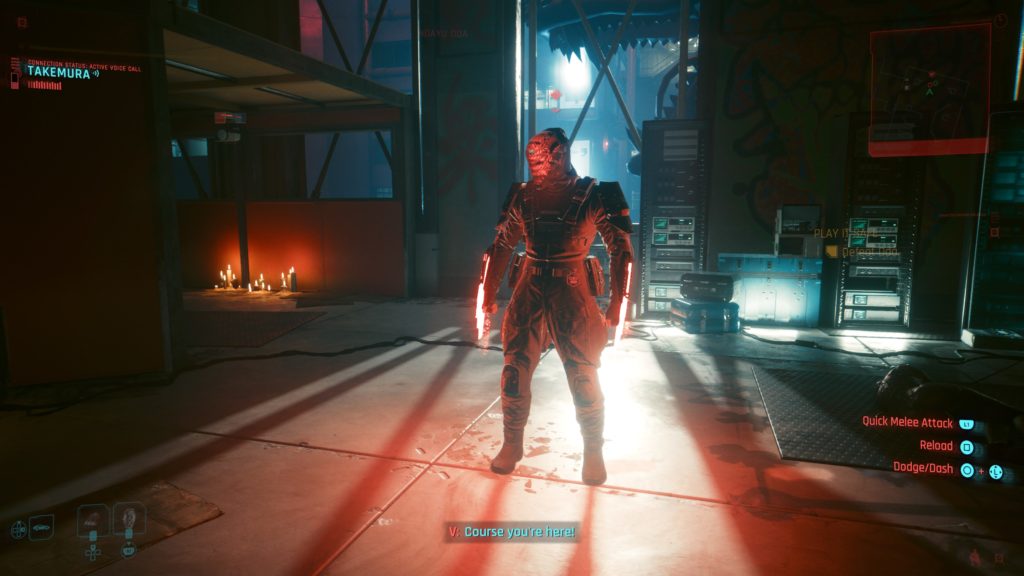- Genre: FPS
- Platform: PS5
- Also Available On: PS4, Xbox One, Xbox Series, PC
I know. I’m spectacularly late on this one. In general I was weary of the original release since I tend to not really find long-form FPS games that appealing. The genre is something that I want to play for a few hours, destroy hordes of enemies, and be done with. However, three years and a big 2.0 patch later I figured it was time to get around to playing this one. What I found was a AAA experience that matches a lot of what I’ve seen in a lot of AAA games in the past decade or so. It does a spectacular amount of different things to a reasonably good standard, but I found myself really struggling to find something that it does to a great standard, and that was something I found across the board.

The city visuals themselves are done to a high level of polish and it’s honestly probably the standout feature of the game as a whole on PS5. The story is a bit of take it or leave it for me, but it was effective enough – at least until the end. Those things are typically not really something that get me to put down a game early, so they kind of hit enough of a mark to be strong for me. I suppose I’m ultimately a gameplay guy, so that’s where my real focus was. The gameplay is really the thing where I kept going “why isn’t there more polish here?”
The most obvious flaw to me playing on console is that it just felt like they didn’t consider the gamepad experience when they were putting it together. It’s not necessarily that the gamepad experience is difficult, but that the depth of assists is just not there. There’s a single setting to manipulate that to the best I could tell only affected an angle of aim correction, as well as typical ADS lock. It didn’t feel like there was any real aim adhesion – where the camera is pulled towards targets based on either the player’s or their movements. It didn’t feel like there was any aim friction – where the movement of the camera slows when panning across a target. For what I expect out of a AAA experience, there was just no depth to modify how the game felt to play on a gamepad.
I know some of you are screaming “just play it on PC” and I don’t necessarily disagree. However, I’ve made these systems for console shooters recently and it’s just not a difficult thing to implement. What it does give you is an ability to craft combat on a gamepad that isn’t spectacularly easy due to aim correction without making it impossible for the player to effectively aim. It also gives the player a much wider range of potential for tweaks to their experience to match their skill level. As implemented in CP2077, it just feels like they slapped aim correction in, said “screw consoles”, and went about their day. It’s a really weird thing to see in this level of budget when the reality is that the console market is a huge revenue driver.

Outside of the core shooting experience, the RPG aspects also had weird things to them that kind of made me question some decisions here. One of the things that really bugged me early on was that weapons were tied to specific parts of the skill tree. My preferred play style as I went through was to go full stealth, inevitably fuck it up about half way through a mission, then go full shotgun chaos. However, stealth and shotguns were in different skill trees. The weapons in the stealth tree weren’t my preferred play style, and the skills in the shotgun tree weren’t my preferred play style. I’d have generally preferred to keep them entirely separate.
However, about half way through I sort of realized that I was no longer actually using the skill tree and I had about 10 points unused. It dawned on me that they really didn’t feel like they were modifying my power curve at all. The only thing I ended up really using the points for was to directly pass skill check requirements to do specific things (ex: open doors with technical knowledge, overpower things with strength, etc). Maybe it’s something that is more relevant to higher difficulties, but on the normal difficulty it was a weird thing to be suddenly wrapping my head around. The power curve was entirely in finding whatever weapon had bigger numbers, and not in applying skills to craft your perfect character. They were irrelevant. For a game that is theoretically trying to be an RPG, having your main RPG system not feel powerful or useful is just weird. It makes me think that separating weapons and skills would have been useful, both to allow players to build in a more weapon-focused direction as well as to allow the skill trees to be made more singularly useful.
All of this is compounded by a bunch of really weird UX decisions that made navigating information really obnoxious. Why can I not get to the crafting screen from the inventory menu? I have to go out a menu, scroll to inventory, scroll down, then go to crafting. Why is the default sorting of the inventory some seemingly random horseshit? At least make it something immediately useful like type sorting. What relevance does the sorting in the journal have? Other than the immediate story mission being at the top, I could never figure out what order the rest is since there’s a mix of basic chores intermingling with stuff that could become story relevant later on. It’s just a bizarre set of menuing that I don’t see working with keyboard/mouse, let alone with the setup on a gamepad.

I guess that sounds like a lot of ragging on the game, and I guess I kind of am. I’ve sounded similarly negative about some other AAA titles that I’ve played in the past few years – Final Fantasy 16, Halo Infinite, Horizon: Forbidden West, or Assassin’s Creed: Valhalla are a few that come to mind. I think ultimately what my frustration is in a lot of these cases is that the games are doing so many things in them that they just don’t need to do, and in going wide on systems they’re losing depth and polish on important things. This game did not need so many skill trees. This game did not need the 8 or 10 categories of player mods. This game did not need as many categories of weapons. This game did not need pages and pages of writing for little journal entries you pick up everywhere. It all feels like things done for the sake of filling a budget that I can only ever dream of working with. However, in going so wide they never really got any system to a place where it was simply great.
That amount of stuff ultimately does mean that as a whole the game is good enough to be fun to play and even recommend, but it also means that the game will never really be at a point where it’s anything other than a footnote as something I’ve played through. I’m not going to remember the writing like I will a game like Spiritfarer, where the journey of death is so crucial and specific that it becomes the core focus of the entire game. It isn’t going to be something like Tears of the Kingdom where they built an entire game around one core idea of sticking things together and letting that one feature breathe. It isn’t going to be like a Ratchet and Clank where they are so focused on making sure their weaponry is fun to use that anything outside of that is basically unnecessary.

I just don’t think these sort of do everything open world scale games are generally that necessary, and I’m hoping we’re starting to turn a corner on it. Ubisoft just released a shorter Assassin’s Creed game that is no longer open world. Some of the common complaints about this year’s big title in Starfield is that it’s effectively unnecessarily too big. I expect that we’ll keep seeing a lot of large open games (hell, Spider-Man 2 is about to come out), but I also hope that companies will start crafting tighter experiences that focus on making a small set of features spectacularly good, rather than making every feature under the sun simply good enough.
